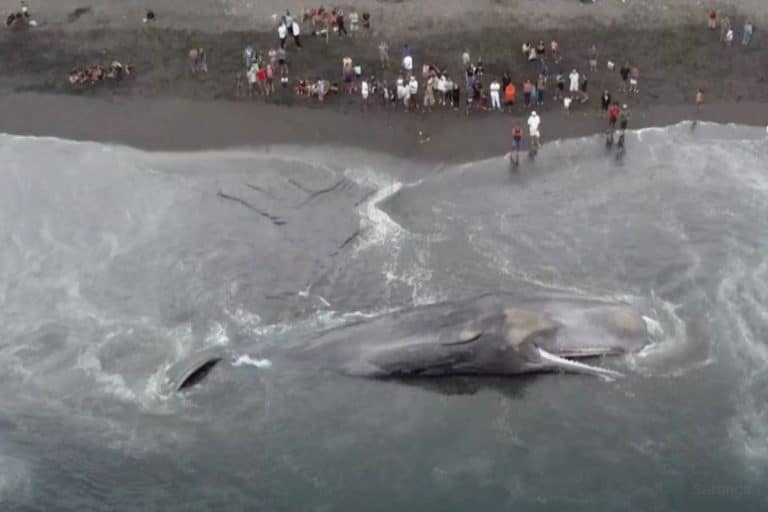A third dead whale was discovered on a beach in Bali over the weekend, bringing the total number of huge marine mammals that have washed up on the island this year to three. Authorities are investigating potential causes of the alarming occurrence.
In the latest incident, a female sperm whale was found dead by villagers near Yeh Leh Beach in Jembrana on Saturday. The whale underwent a necropsy before being buried at the same beach at 9 p.m. yesterday.
The carcass of the third whale was already decomposing when it was discovered, according to Pande Ketut Cahya Krisnanta, the marine environment program officer for the nonprofit organization Yayasan Bali Bersih, who spoke with Coconuts Bali.
“For now, we, along with a team of vets, agreed to state that the whale was ‘sick’ and that was why it washed ashore. As for what illness, we need to wait for lab results and that can take up to three to four weeks,” he said in a text message.
Another female sperm whale was discovered dead on a beach in Karangasem back on April 6. It was reported that the whale was injured but still alive when it washed up on Klungkung beach that day. With the help of a rising tide, locals and authorities managed to drive the whale back into the water, but the marine animal met its untimely end soon after.
The second female sperm whale was also found sick, although specialists have not yet been able to determine the subtleties of her condition.
A Bryde’s whale, the first whale found dead this year, washed up on Seseh Beach in Munggu on January 19. The carcass was so decomposed that a necropsy could not be performed, so the cause of death could not be determined.
The head of the Bali Office of Indonesia’s Natural Resources Conservation Center (BKSDA). Agus Budi Santosa, hypothesizes a number of factors for the phenomenon, including increasing noise pollution from the ocean and drastic weather changes.
“It should be understood that the waters of Bali Island serve as an annual migration path for big sea mammals including sperm whales. The majority of fish and sea mammals follow the upwelling of warm sea current that is rich with planktons,” he told CNN Indonesia reporters.

